Just in time for spooky season, Tim Burton’s long-rumored sequel Beetlejuice Beetlejuice has been taking the cinema world by storm. It has recently passed the $400 million threshold at the box office and sits at a solid 77% on Rotten Tomatoes along with a 7.0 score on IMDB. The return of Michael Keaton’s eccentric ghost, Beetlejuice, has certainly gained positive ratings from fans and critics.
In comparison to its classic predecessor, Beetlejuice, it’s considered a worthy sequel on par with the original. The 1988 original was a hit among dark comedy and horror fans, getting an 83% on Rotten Tomatoes and a 7.5 score on IMDB. Given its unique appeal and lower budget, it only garnered a box office return of $74.8 million. However, it was still a big hit at the time. Both have been stamped as classic Tim Burton successes and there’s an adoration for the original that will stand the test of time. However, Beetlejuice Beetlejuice might very well be a better film, for a more obvious reason than expected.
Beetlejuice Has an Originality Its Sequel Never Could
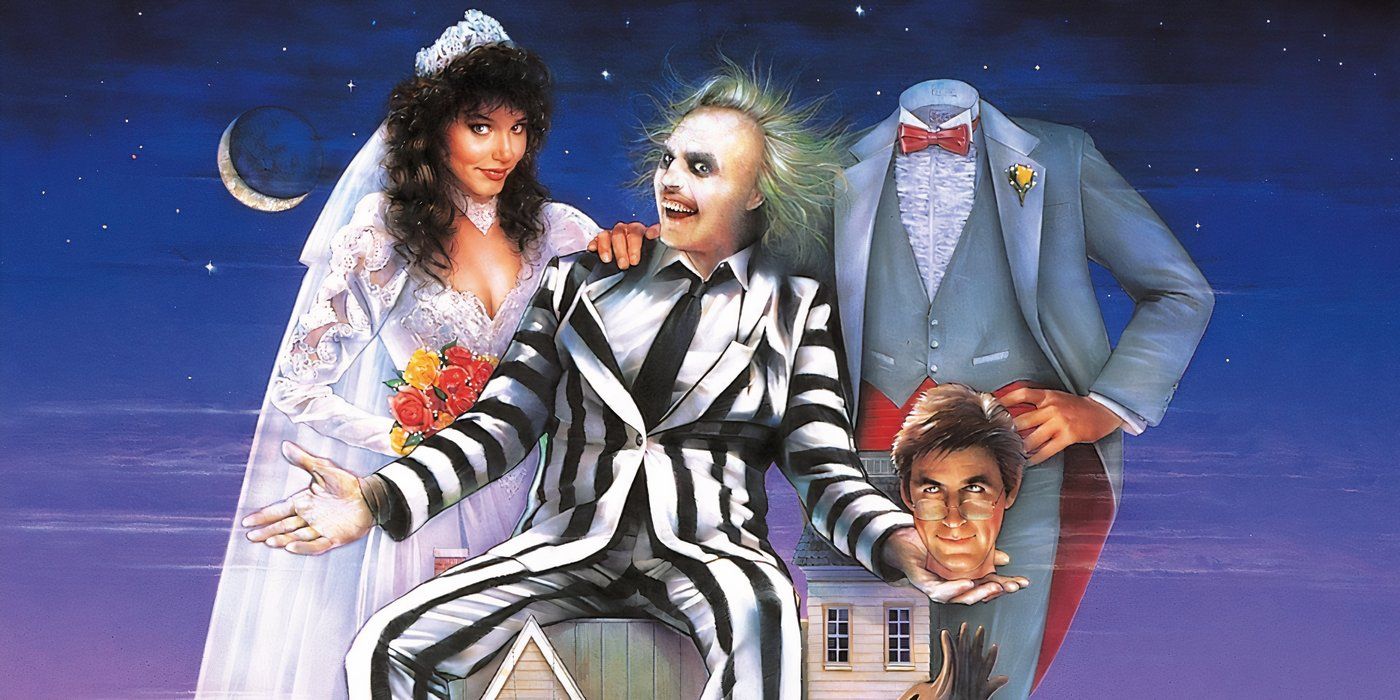
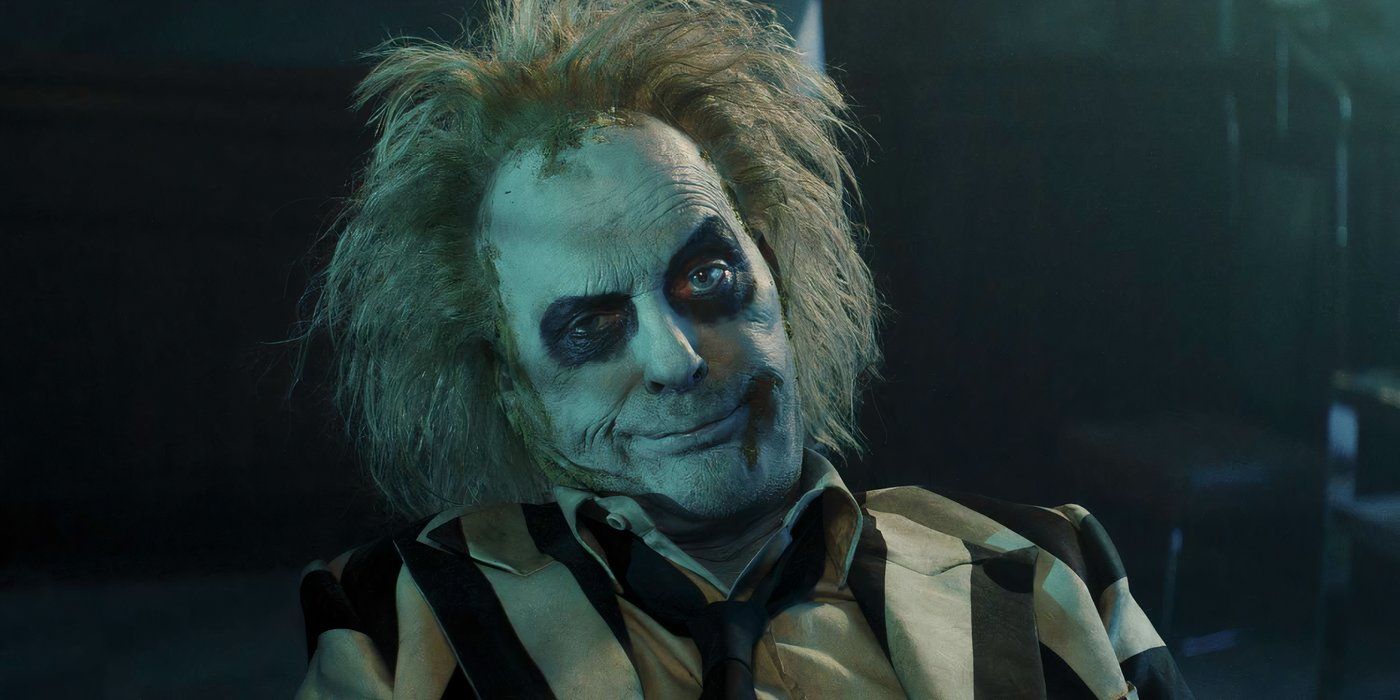
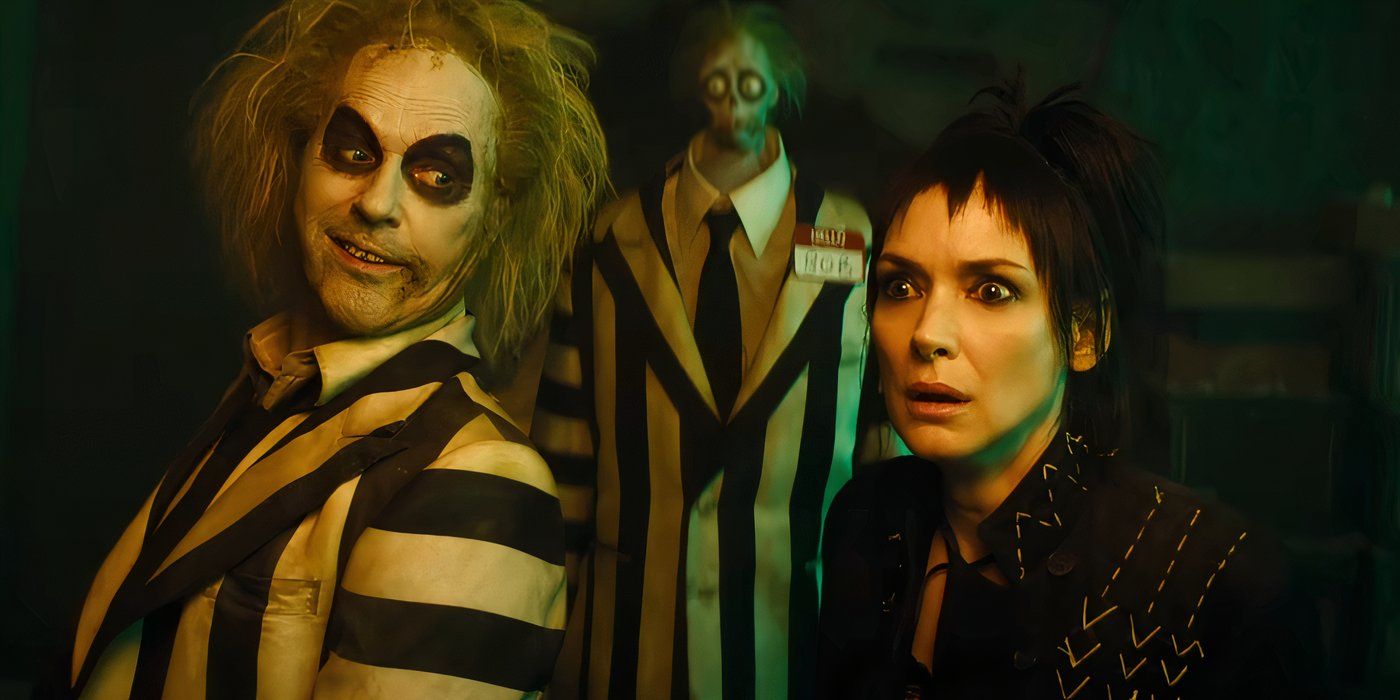
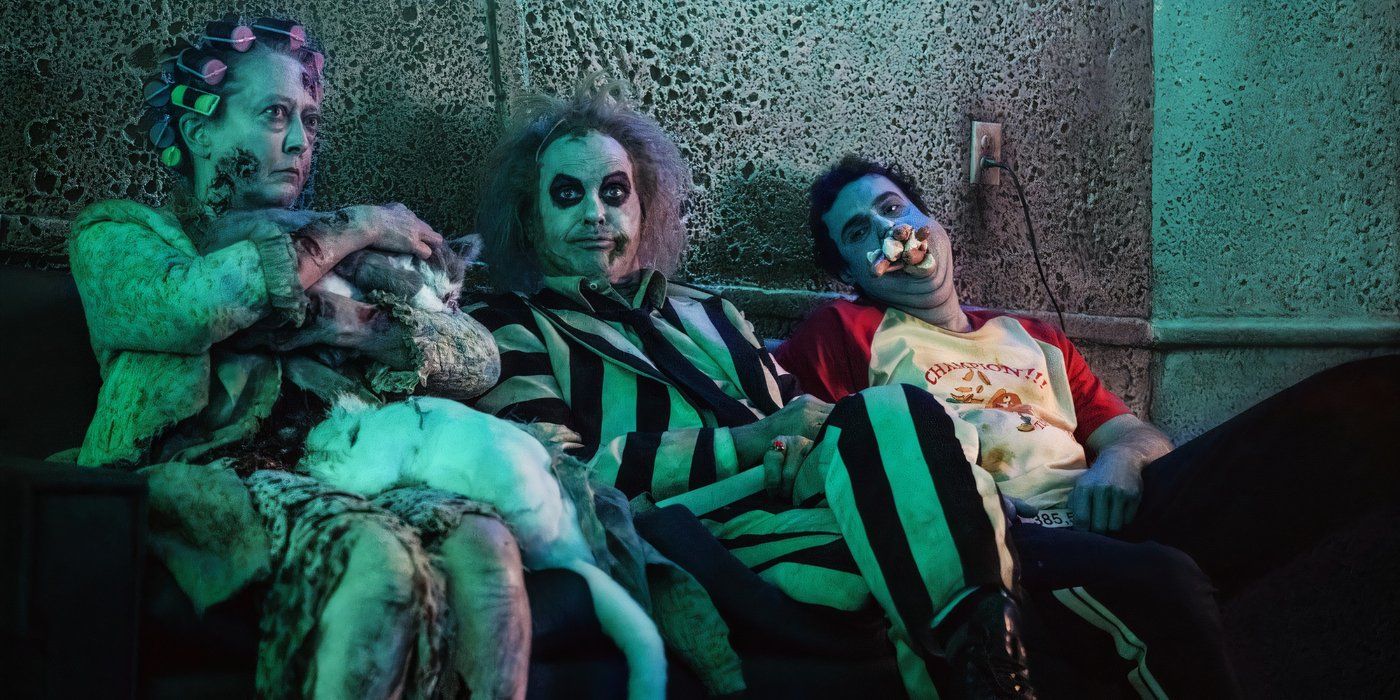




Tim Burton became known for having an original voice in cinema with his grandiose visions, unique stories, gothic inspiration and use of practical effects. Although Burton didn’t conceive the idea for Beetlejuice, he certainly only considers working on scripts that most match his style. When Beetlejuice was released in 1988, it was met with mostly positive reactions. In the years following, it became more and more popular among specific audiences. It is now commonly referred to as a perfect movie to watch during the Halloween season. Beetlejuice costumes were popular merchandise during spooky season for years and years after the film’s release. Michael Keaton’s role is forever iconic, and a sequel to the film was always something fans had hoped for.
Michael Keaton’s Biggest Hits
Year
Total Gross
Genre
Spider-Man: Homecoming
2017
$880 Million
Superhero
Batman
1989
$441 Million
Superhero
Batman Returns
1992
$267 Million
Superhero
Becoming first a cult classic and then eventually an all-around classic among audiences, Beetlejuice is appreciated for its stylistic authenticity and for breaking the mold of modern movie trends. The film is often revered for being different, with its obscure scenes and sequences, costumes, hair and make-up and practical effects. The dinner sequence where Beetlejuice forces the entire Deetz family and their friends to sing the Harry Belafonte version of the classic folk tune “Day-O” has been regarded as one of the most visually compelling scenes in the film and helped define the Beetlejuice lore as synonymous with musical numbers. Its cast, which includes Michael Keaton, Winona Ryder, and Catherine O’Hara, to name a few, has gone on to become iconic identifiable pieces of the film. Beetlejuice won an Oscar for Hair and Make-up at the 61st Academy Awards.
Ultimately, the original 1988 film is iconic and beloved among audiences to this day. What it did best was bring a level of originality to the cinema that has not been replicated since, unless compared to other Tim Burton releases. The concept alone was unique in that it completely turned the haunted house premise on its head. The idea of what recently deceased people do to try and rid themselves of the living presence in their homes is one of the best concepts for a film in cinema history. Furthermore, the characters of Beetlejuice and even the Deetz family are some of the most original characters in their genre. With obvious The Addams Family inspirations, the characters and situations will continue to make horror and dark comedy fans giddy with excitement for years to come. Beetlejuice was a holy original film and can never be matched in that regard. It gave audiences some of their favorite movie characters ever. However, there’s something the recently released sequel just does better, and it connects directly to the audience’s interests.
Beetlejuice Beetlejuice Tells a Better Story Than the Original
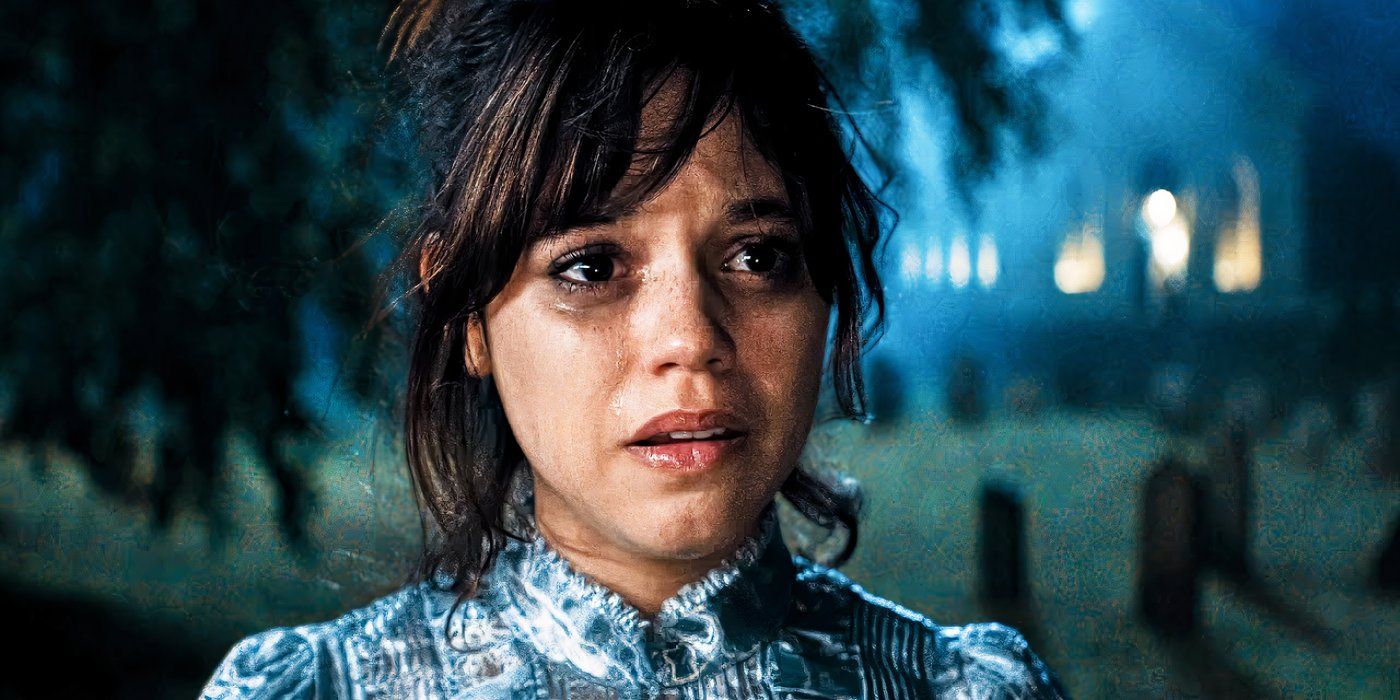
While the original Beetlejuice has the best concept and an otherwise simplistic plot at the center of it, the sequel, Beetlejuice Beetlejuice expands on an important element of the first film and gives the second film a lot more heart and soul than the original. In Beetlejuice, Winona Ryder’s character Lydia is who audiences most connect with. She’s the angsty teen at the center of the entire film and becomes a key catalyst for how the story concludes. Her feelings, teen struggles and disconnect from the norm of society’s conventions are what most provide a personal connection for the audience. In other words, she’s the most relatable character. However, Lydia’s character arc is often overshadowed by the bigger central conflict that is going on in the film. The Maitlands and their dire need to rid the house of the Deetz family as well as Beetlejuice’s constant interference are the main focus. Naturally, this was important for the original’s ability to hook an audience.
In Beetlejuice Beetlejuice, there’s less of a need to focus on the identifiable Beetlejuice lore elements, allowing the writer to flourish on a different level. The sequel moves away from Lydia in many respects, as she is now an adult and as much a product of the system as any other person. Ironically, she resembles her stepmother Delia now more than ever, and that is who she most criticized in the original. However, the film turns its attention to Jenna Ortega’s character Astrid, who is the angsty daughter of Lydia and resembles how her mother used to be in the original film. Once again, the audience connects with Astrid more than other characters because of her desperate need to find purpose in a world and family she doesn’t understand. While Beetlejuice Beetlejuice does suffer from a convoluted plot, with too many storylines going on at once, it does a good job keeping Astrid’s wants at the center of it.
Tim Burton’s Biggest Hits
Year
Total Gross
Genre
Alice in Wonderland
2010
$1 Billion
Fantasy
Charlie and the Chocolate Factory
2005
$475 Million
Adventure
Batman
1989
$441 Million
Superhero
Unlike the original, Beetlejuice and his antics can exist somewhat in the background as he deals with a personal crisis that the audience just checks in on as opposed to spending too much time on. This element of the film and Beetlejuice’s overall impact come together nicely in the final act. In fact, it’s a more an active character decision by Lydia that brings Beetlejuice into the major central arc of the film.
The real story of Beetlejuice Beetlejuice is about Astrid Deetz and her inability to fit in wherever she is and wherever she goes. Her estranged relationship with her mother and her desire to find purpose become the main point of emphasis for the sequel. The many major plot points revolving around Astrid’s arc, including her developing a crush on a boy that turns out to be dead, brings another level of quality to the overall storytelling. It’s Astrid’s scenes that steal the show and often provide the biggest twists. The audience continues to root for her and fear for her as they discover that this ghostly love interest, Jeremy, is not only dead, but killed his own parents and is using Astrid to try and escape the afterlife by exchanging his place in it with hers. These major sequences, along with Jenna Ortega’s raw performance, give greater depth to the film and keep the audience invested.
Beetlejuice Beetlejuice Will Become as Beloved as Its Predecessor
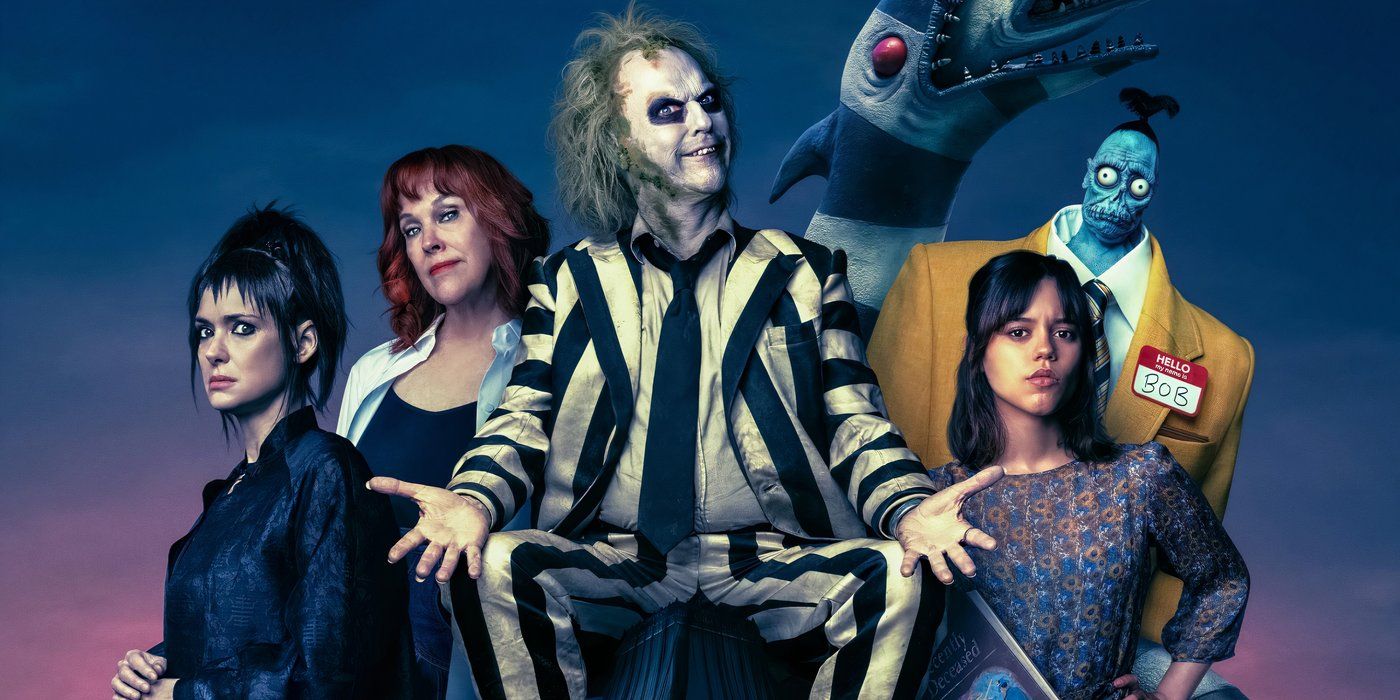
It’s a testament to Tim Burton, the cast and the writers that they were able to deliver a worthy sequel to a beloved 80s classic. The fact that Beetlejuice Beetlejuice is resonating with fans is a big deal for a sequel that has come out almost forty years after the original. Furthermore, the Halloween and Fall season allure that continued to make the original so cherished, remains present throughout the entirety of the sequel. Jenna Ortega’s ability to pick up where Winona Ryder left off and deliver a character as important and as relatable as Lydia Deetz can’t be overlooked.
As Beetlejuice Beetlejuice continues to garner more and more success with critics, fans and the box office, it’s only a matter of time before fans everywhere begin to throw on a double-feature that they can enjoy during the spooky season. Given the fact that the sequel is as equally distinct in tone and style as the original, and tells a better story, there’s a good chance Beetlejuice Beetlejuice will be as beloved as Beetlejuice was for years to come. The 2024 sequel is on its way to becoming a classic in the horror comedy genre.

